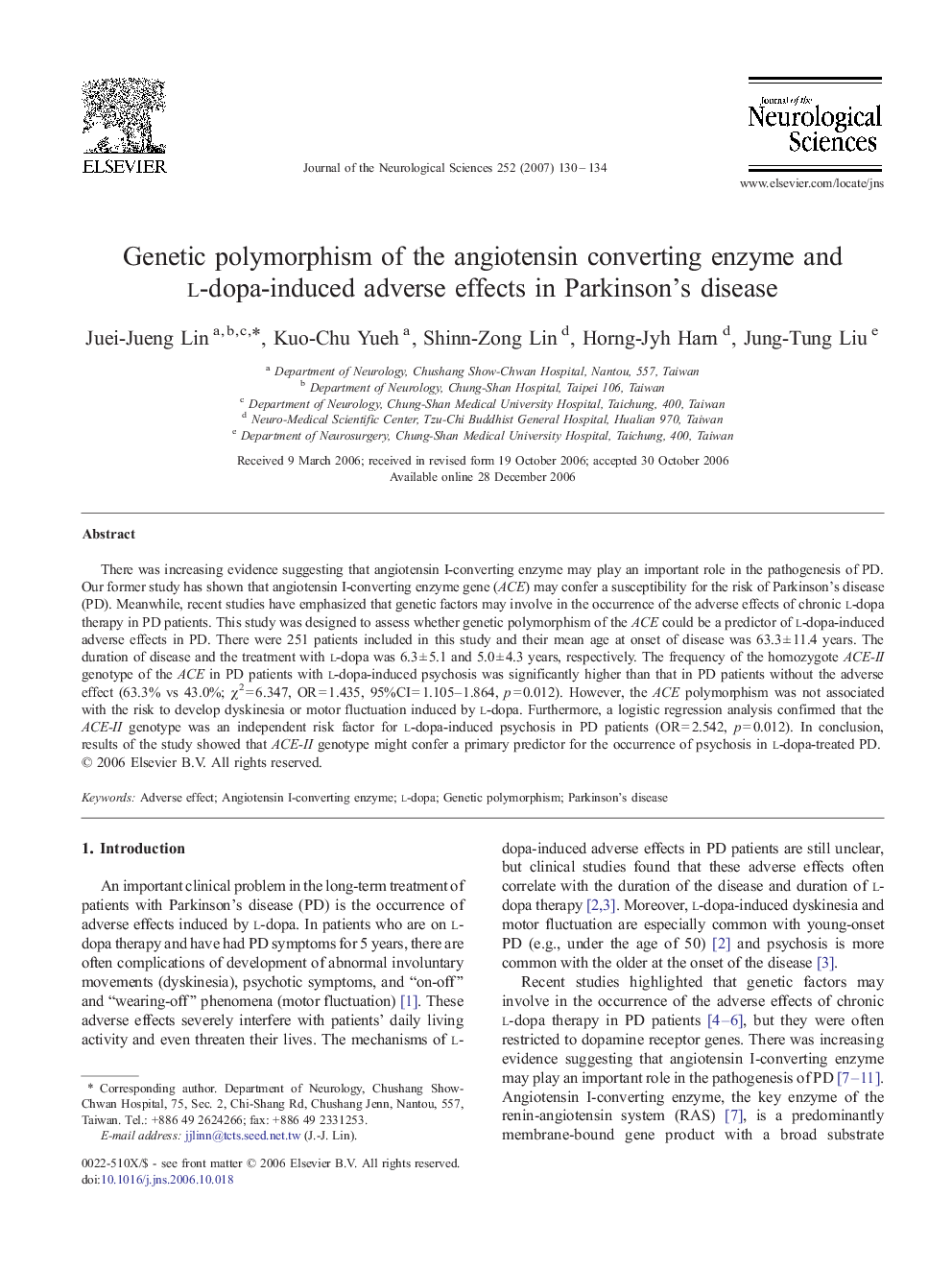| Article ID | Journal | Published Year | Pages | File Type |
|---|---|---|---|---|
| 1916468 | Journal of the Neurological Sciences | 2007 | 5 Pages |
Abstract
There was increasing evidence suggesting that angiotensin I-converting enzyme may play an important role in the pathogenesis of PD. Our former study has shown that angiotensin I-converting enzyme gene (ACE) may confer a susceptibility for the risk of Parkinson's disease (PD). Meanwhile, recent studies have emphasized that genetic factors may involve in the occurrence of the adverse effects of chronic l-dopa therapy in PD patients. This study was designed to assess whether genetic polymorphism of the ACE could be a predictor of l-dopa-induced adverse effects in PD. There were 251 patients included in this study and their mean age at onset of disease was 63.3 ± 11.4 years. The duration of disease and the treatment with l-dopa was 6.3 ± 5.1 and 5.0 ± 4.3 years, respectively. The frequency of the homozygote ACE-II genotype of the ACE in PD patients with l-dopa-induced psychosis was significantly higher than that in PD patients without the adverse effect (63.3% vs 43.0%; Ï2 = 6.347, OR = 1.435, 95%CI = 1.105-1.864, p = 0.012). However, the ACE polymorphism was not associated with the risk to develop dyskinesia or motor fluctuation induced by l-dopa. Furthermore, a logistic regression analysis confirmed that the ACE-II genotype was an independent risk factor for l-dopa-induced psychosis in PD patients (OR = 2.542, p = 0.012). In conclusion, results of the study showed that ACE-II genotype might confer a primary predictor for the occurrence of psychosis in l-dopa-treated PD.
Related Topics
Life Sciences
Biochemistry, Genetics and Molecular Biology
Ageing
Authors
Juei-Jueng Lin, Kuo-Chu Yueh, Shinn-Zong Lin, Horng-Jyh Harn, Jung-Tung Liu,
